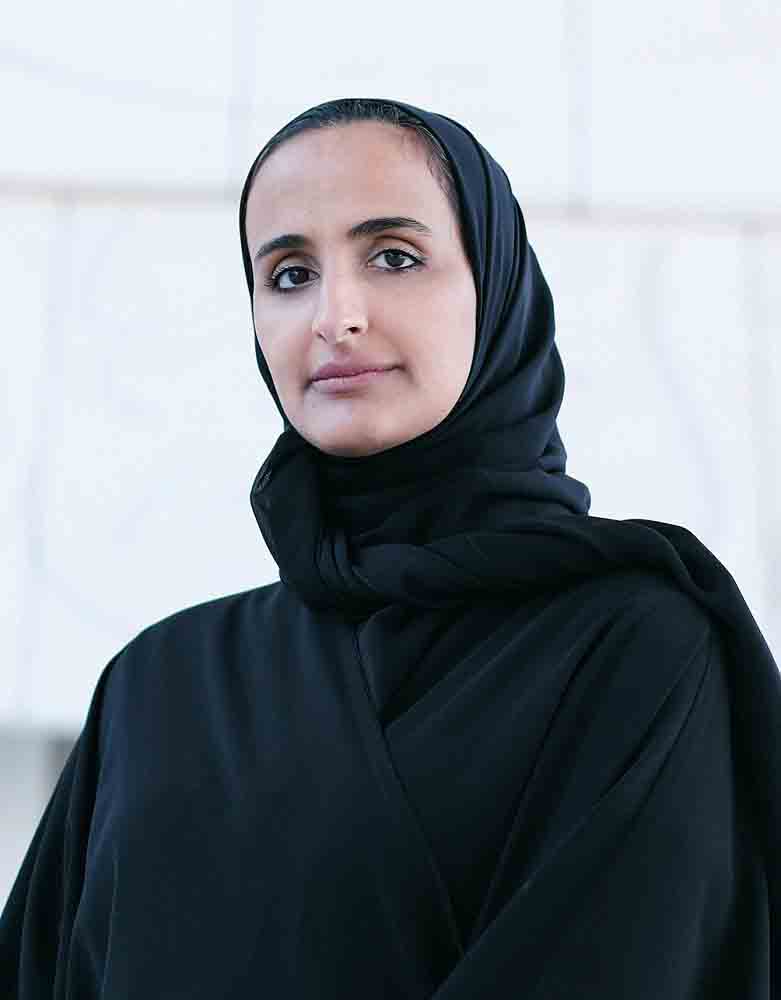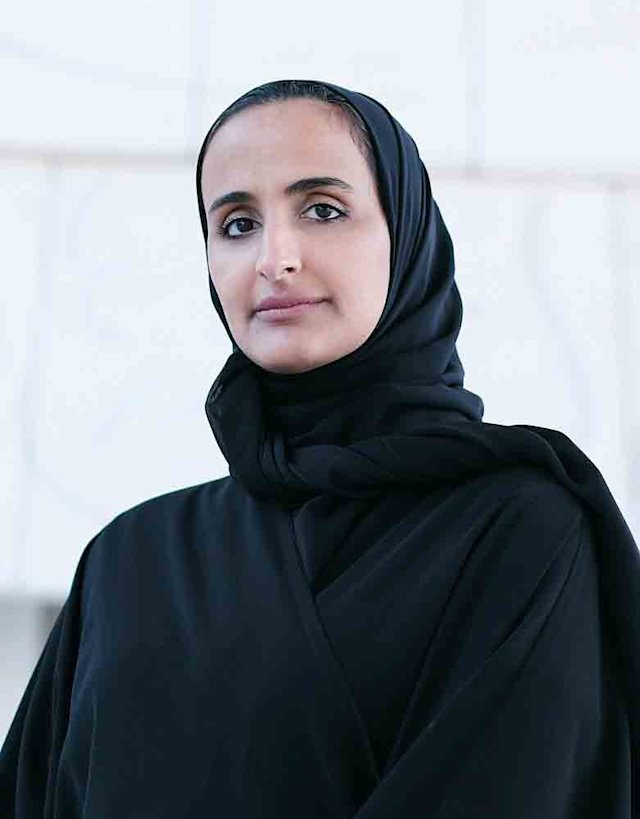New Milestones, New Challenges
March was the month when Qatar – and Qatar Foundation – began to find its resilience truly being put to the test, as the COVID-19 pandemic heralded sweeping, unprecedented changes to work and life.
Ahead of the introduction of a swathe of public health guidelines necessitated by the virus, however, it was a month of milestones in the continuing expansion of Qatar Foundation’s (QF) ecosystem – as well as for a visually stunning and spiritually uplifting Education City landmark.
Minaretein (the Education City Mosque) marked its fifth anniversary, with the duo who designed it - architects Ali Mangera and Ada Yvars Bravo – returning to Doha to reflect on an architectural masterpiece that blends heritage and modernity, and fosters inter-faith understanding.
March was the month when Qatar – and Qatar Foundation – began to find its resilience truly being put to the test, as the COVID-19 pandemic heralded sweeping, unprecedented changes to work and life.
Ahead of the introduction of a swathe of public health guidelines necessitated by the virus, however, it was a month of milestones in the continuing expansion of Qatar Foundation’s (QF) ecosystem – as well as for a visually stunning and spiritually uplifting Education City landmark.
Minaretein (the Education City Mosque) marked its fifth anniversary, with the duo who designed it - architects Ali Mangera and Ada Yvars Bravo – returning to Doha to reflect on an architectural masterpiece that blends heritage and modernity, and fosters inter-faith understanding.
As COVID-19 tightened its global grip, and ways of life began to change, QF’s ecosystem first expanded – and then responded and adapted to a ‘new normal’
The Education City Mosque can host 2,800 worshippers
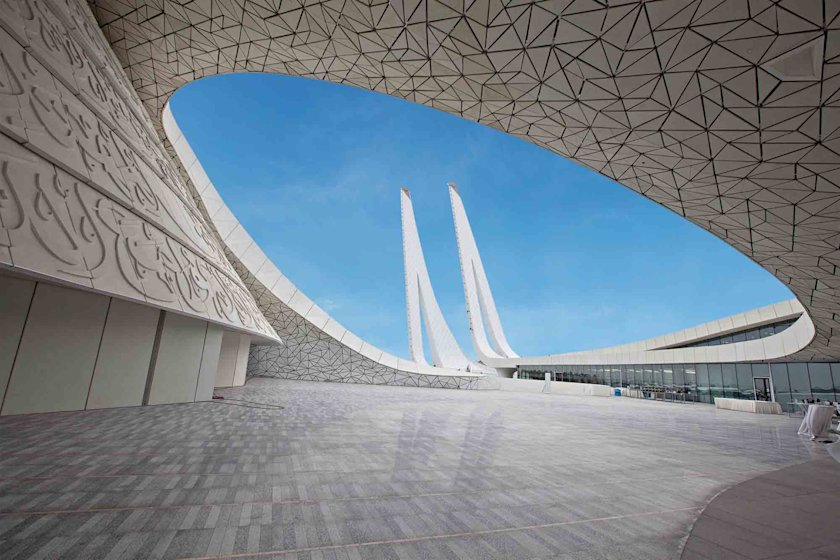
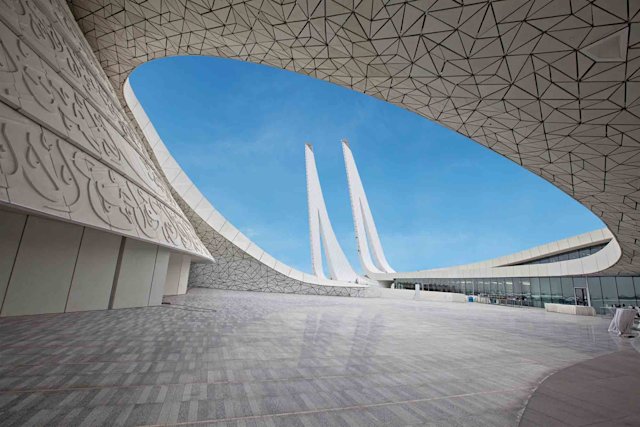
Inclusivity and enjoyment
The official opening of the Education City Golf Club came as it hosted its first international tournament – the Commercial Bank Qatar Masters 2020 – with Her Highness Sheikha Moza bint Nasser, Co-Founder and Chairperson of Qatar Foundation, touring the facilities within a sporting and community facility that is both a venue for top-class golf, and a place where people of all ages can embrace and enjoy the game. “Through the opportunities it offers, and its ethos as a venue, the Education City Golf Club reflects Qatar Foundation’s commitment to promoting healthy, active lifestyles and the importance of wellbeing, and emphasizes the fact that sport is for all,” said Machaille Hassan Al-Naimi, President of Community Development, QF.
“This is a truly inclusive facility, opening the way for children, adults, and entire families to discover the game of golf and feel the benefits it brings in terms of physical fitness, mental stimulation, and social interaction.”
The official opening of the Education City Golf Club came as it hosted its first international tournament – the Commercial Bank Qatar Masters 2020 – with Her Highness Sheikha Moza bint Nasser, Co-Founder and Chairperson of Qatar Foundation, touring the facilities within a sporting and community facility that is both a venue for top-class golf, and a place where people of all ages can embrace and enjoy the game. “Through the opportunities it offers, and its ethos as a venue, the Education City Golf Club reflects Qatar Foundation’s commitment to promoting healthy, active lifestyles and the importance of wellbeing, and emphasizes the fact that sport is for all,” said Machaille Hassan Al-Naimi, President of Community Development, QF.
“This is a truly inclusive facility, opening the way for children, adults, and entire families to discover the game of golf and feel the benefits it brings in terms of physical fitness, mental stimulation, and social interaction.”
Through the opportunities it offers, and its ethos as a venue, the Education City Golf Club reflects Qatar Foundation’s commitment to promoting healthy, active lifestyles and the importance of wellbeing
The Education City Golf Club:
- Has 3 courses totaling 33 holes
- Covers 120 hectares
- Enables golf to be played at night
- Was designed by golf legend Jose Maria Olazábal
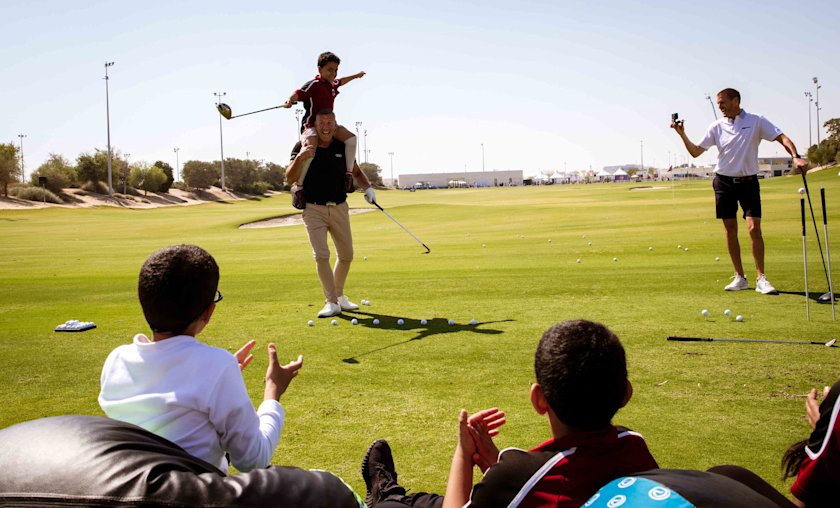
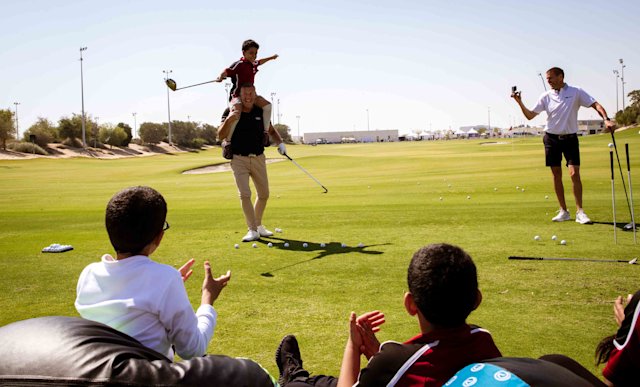
A new level of equine healthcare
Three days later, Her Highness Sheikha Moza bint Nasser officially opened QF’s Equine Veterinary Medical Center (EVMC) – a regionally unique facility providing the highest standards of healthcare for horses, while also advancing veterinary science.
“The Arabian horse breed is respected, admired, and much-loved cornerstone of the cultural heritage of Qatar and the Arab world,” said Khalifa Al Attiya, Executive Director of Al Shaqab, QF’s equine and equestrian center, within whose premises EVMC – a QF member – is located, “and the world-class healthcare that the Equine Veterinary Medical Center provides for this symbol of our nation and the region reflects its enduring, central role in our society.
“As well as providing an exceptional standard of equine healthcare for horse-owners throughout Qatar and beyond, the center aims to be at the forefront of creating new knowledge in this field through groundbreaking research, provide opportunities for both postgraduate students and scientists, and raise awareness of the veterinary profession in Qatar.”
Three days later, Her Highness Sheikha Moza bint Nasser officially opened QF’s Equine Veterinary Medical Center (EVMC) – a regionally unique facility providing the highest standards of healthcare for horses, while also advancing veterinary science.
“The Arabian horse breed is respected, admired, and much-loved cornerstone of the cultural heritage of Qatar and the Arab world,” said Khalifa Al Attiya, Executive Director of Al Shaqab, QF’s equine and equestrian center, within whose premises EVMC – a QF member – is located, “and the world-class healthcare that the Equine Veterinary Medical Center provides for this symbol of our nation and the region reflects its enduring, central role in our society.
“As well as providing an exceptional standard of equine healthcare for horse-owners throughout Qatar and beyond, the center aims to be at the forefront of creating new knowledge in this field through groundbreaking research, provide opportunities for both postgraduate students and scientists, and raise awareness of the veterinary profession in Qatar.”
The Arabian horse breed is a respected, admired, and much-loved cornerstone of the cultural heritage of Qatar and the Arab world
QF’s Equine Veterinary Medical Center provides specialized services for horses, including:
- Surgery
- Internal medicine
- Sports medicine and rehabilitation
- Reproduction
- Dentistry
- Diagnostic imaging
- Anesthesiology and pain management
- A 24/7 emergency service
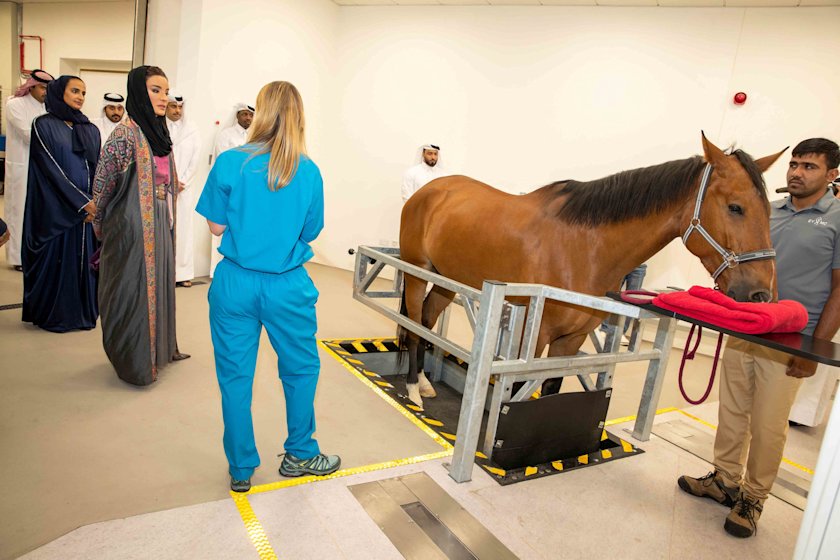
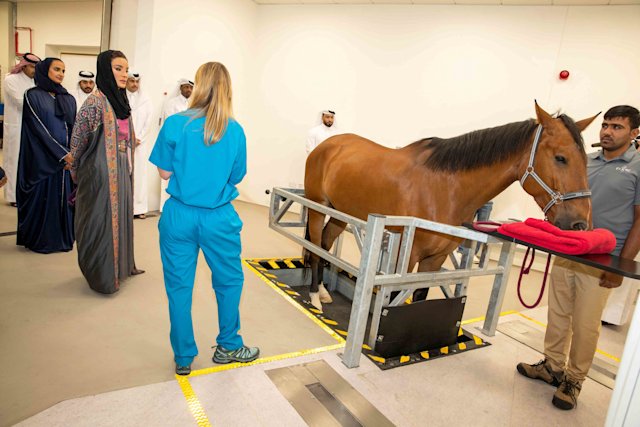
Advancing innovation in health
In the field of human healthcare, the World Innovation Summit for Health (WISH) – QF’s global healthcare initiative – opened up two new competitions supporting its aim of building a healthier world through global collaboration.
The WISH Innovation Spark Competition and the WISH Innovation Booster Competition aim to provide entrepreneurs with a platform to promote ideas and products that can improve healthcare quality and delivery.
QF member Sidra Medicine – a pioneering women and children’s hospital and medical research center – established the Middle East’s first digital pediatric pathology laboratories. And researchers at QF partner university Weill Cornell Medicine-Qatar discovered the anti-cancer properties of a widely-used diabetes drug, metformin, opening up the possibility of it being used as therapy for multiple cancers; while the university’s associate professor of physics, Dr. Mohammed Yousuf, created the world’s smallest drill – 50,000 times smaller than the breadth of a human hair, and with the potential to be used to deliver drugs to finely-targeted areas of the human body.
In the field of human healthcare, the World Innovation Summit for Health (WISH) – QF’s global healthcare initiative – opened up two new competitions supporting its aim of building a healthier world through global collaboration.
The WISH Innovation Spark Competition and the WISH Innovation Booster Competition aim to provide entrepreneurs with a platform to promote ideas and products that can improve healthcare quality and delivery.
QF member Sidra Medicine – a pioneering women and children’s hospital and medical research center – established the Middle East’s first digital pediatric pathology laboratories. And researchers at QF partner university Weill Cornell Medicine-Qatar discovered the anti-cancer properties of a widely-used diabetes drug, metformin, opening up the possibility of it being used as therapy for multiple cancers; while the university’s associate professor of physics, Dr. Mohammed Yousuf, created the world’s smallest drill – 50,000 times smaller than the breadth of a human hair, and with the potential to be used to deliver drugs to finely-targeted areas of the human body.
Sidra Medicine:
- Provides tertiary healthcare for women and children
- Conducts biomedical research
- Offers medical education
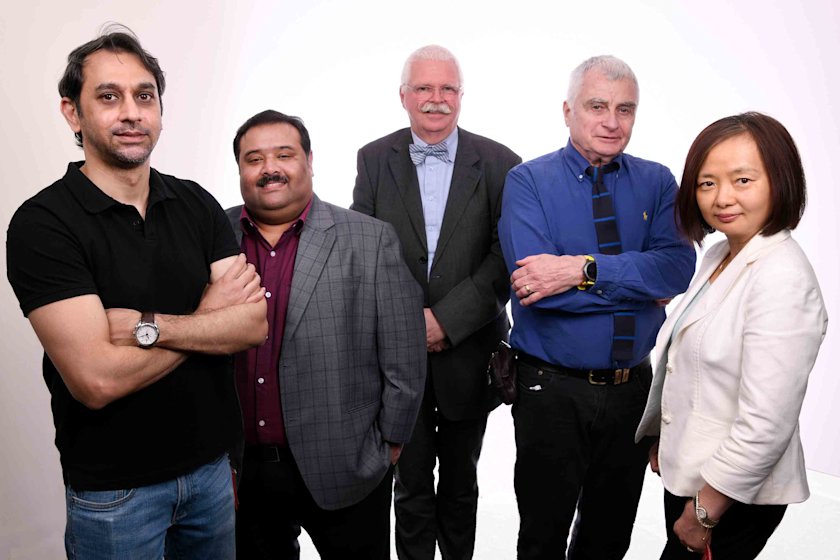
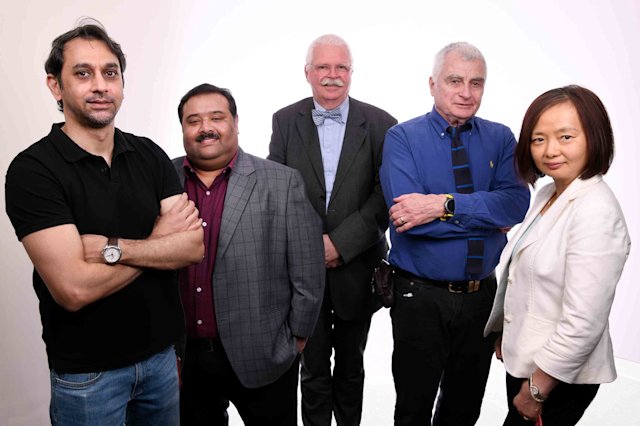
Ready to respond
From mid-March onward, health would be at the front of every mind. The growing global impact of the COVID-19 pandemic created new, unique challenges for Qatar and its people to face, as measures implemented to safeguard public health came into force across the country – and what was previously physical became virtual.
For QF, its culture of adaptability, its planning and preparedness, and its investment in technology enabled a seamless shift to online learning within its schools and universities, and to home working for its thousands of employees – with the transition happening in a way that led to neither students’ education nor the organization’s operations being affected.
Meanwhile, public facilities and programs were closed and events cancelled, reflecting how people’s health and wellbeing is QF’s top priority.
From mid-March onward, health would be at the front of every mind. The growing global impact of the COVID-19 pandemic created new, unique challenges for Qatar and its people to face, as measures implemented to safeguard public health came into force across the country – and what was previously physical became virtual.
For QF, its culture of adaptability, its planning and preparedness, and its investment in technology enabled a seamless shift to online learning within its schools and universities, and to home working for its thousands of employees – with the transition happening in a way that led to neither students’ education nor the organization’s operations being affected.
Meanwhile, public facilities and programs were closed and events cancelled, reflecting how people’s health and wellbeing is QF’s top priority.
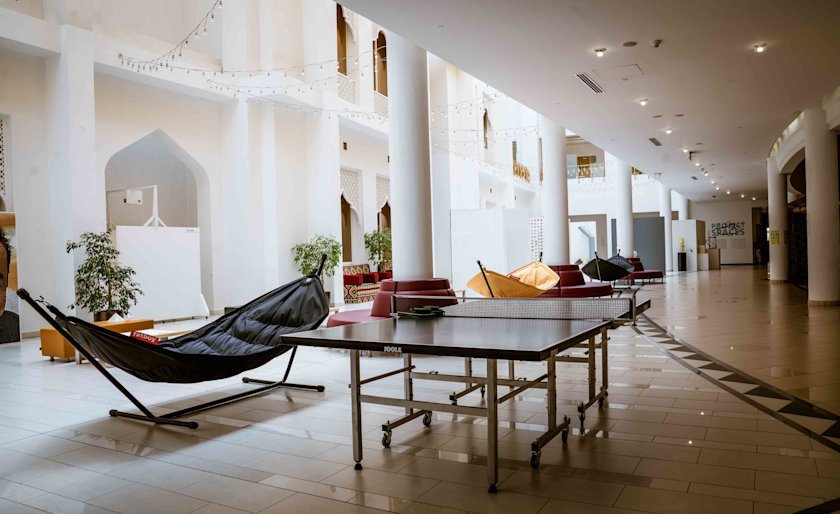
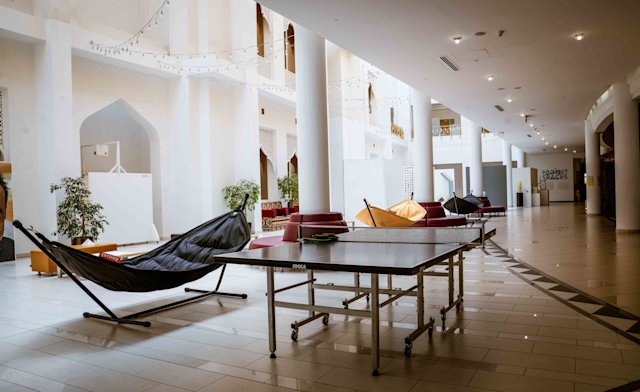
Supporting business and community
QF provided immediate support for its external SME retail tenants as they sought to overcome the tests presented to them by COVID-19, by waiving their rental payments for six months – a move designed both to support a valued element of QFs community, and the economic resilience of the country.
Its Qatar Reads initiative, through its Family Reading Program, ensured the continuation of monthly packages of books, comics, and activity sheets to its members – just one illustration of QF putting its belief that learning never stops into practice – while QF initiatives such as WISH and Doha Debates hosted online webinars exploring topics such as medical, ethical, and biomedical perspectives on COVID-19, and what the pandemic could mean for global governance systems.
QF provided immediate support for its external SME retail tenants as they sought to overcome the tests presented to them by COVID-19, by waiving their rental payments for six months – a move designed both to support a valued element of QFs community, and the economic resilience of the country.
Its Qatar Reads initiative, through its Family Reading Program, ensured the continuation of monthly packages of books, comics, and activity sheets to its members – just one illustration of QF putting its belief that learning never stops into practice – while QF initiatives such as WISH and Doha Debates hosted online webinars exploring topics such as medical, ethical, and biomedical perspectives on COVID-19, and what the pandemic could mean for global governance systems.
Qatar Reads aims to shape:
- Active and globally-aware citizens
- Innovative, critical, independent thinkers
- A society that takes responsibility for discovery
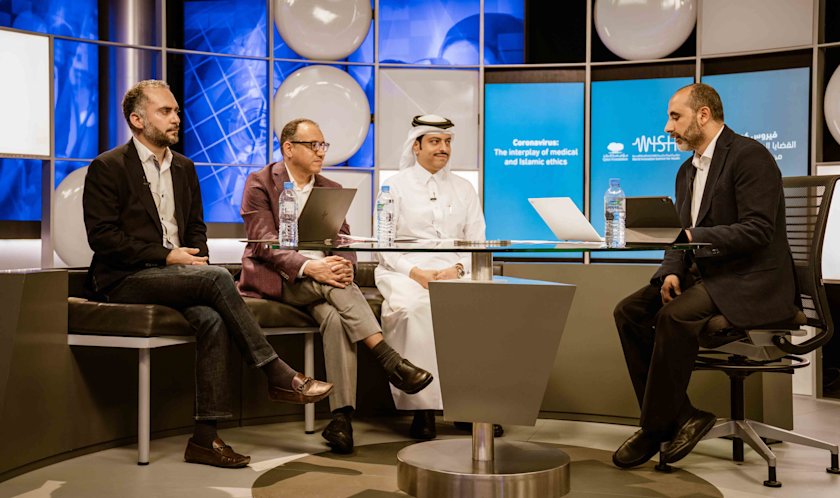
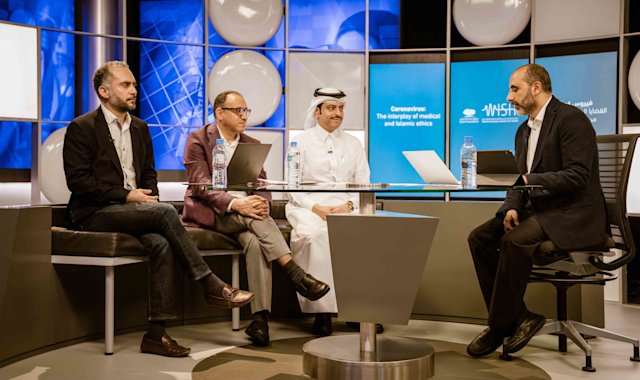
Sending a message
Hamad Bin Khalifa University’s Qatar Computing Research Institute swiftly created a system to trace the movement of people based on cellphone data, supporting health authorities with contract tracing in the pandemic’s early weeks before the country’s Ehteraz app was deployed. The institute also developed a portfolio of applications and tools to address COVID-19 priorities, with one solution gathering social distancing-related data to help health authorities in Qatar, and later being extended to cities such as Beirut, Amman, Kuwait City, Nairobi, and Lagos.
And QF’s Qatar Philharmonic Orchestra performed a virtual concert with a vital message – urging people to stay at home and play their part in curbing COVID-19.
The orchestra followed the release of a video rendition of the second movement from Antonin Dvorak’s Symphony No.9 (From The New World) – adapted into a song called Goin’ Home – and its accompanying #StayHome hashtag by raising the lockdown spirits of Qatar’s community with a series of weekly performances from its musicians’ balconies.
Hamad Bin Khalifa University’s Qatar Computing Research Institute swiftly created a system to trace the movement of people based on cellphone data, supporting health authorities with contract tracing in the pandemic’s early weeks before the country’s Ehteraz app was deployed. The institute also developed a portfolio of applications and tools to address COVID-19 priorities, with one solution gathering social distancing-related data to help health authorities in Qatar, and later being extended to cities such as Beirut, Amman, Kuwait City, Nairobi, and Lagos.
And QF’s Qatar Philharmonic Orchestra performed a virtual concert with a vital message – urging people to stay at home and play their part in curbing COVID-19.
The orchestra followed the release of a video rendition of the second movement from Antonin Dvorak’s Symphony No.9 (From The New World) – adapted into a song called Goin’ Home – and its accompanying #StayHome hashtag by raising the lockdown spirits of Qatar’s community with a series of weekly performances from its musicians’ balconies.
Qatar Computing Research Institute focuses on:
- Arabic language technologies
- Social computing
- Data analytics
- Cybersecurity
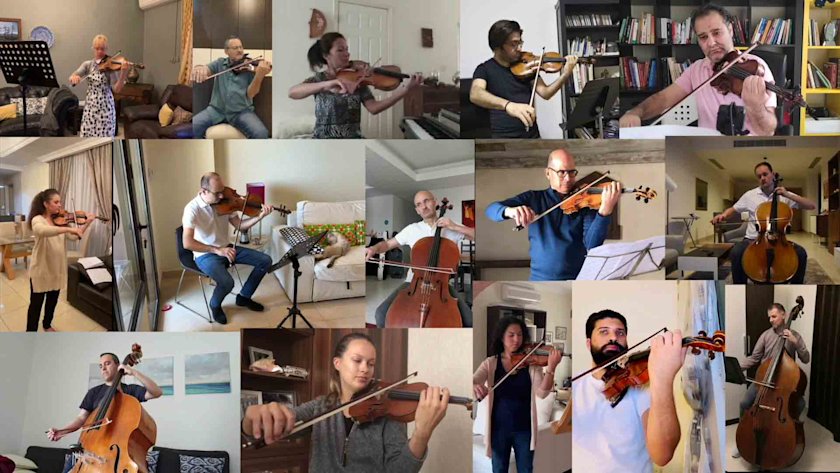
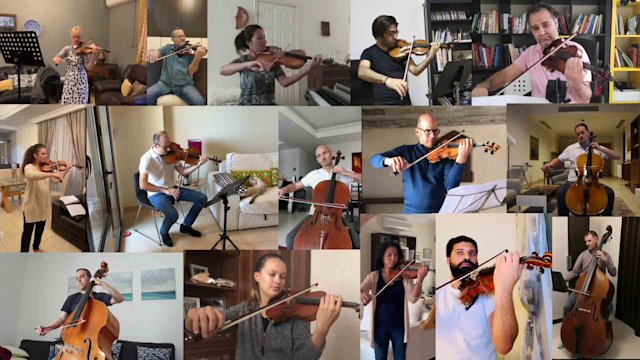
In the service of Qatar
As people across Qatar answered the Ministry of Public Health’s call for volunteers to sign up for its national For Qatar campaign intended to support the country’s healthcare professionals among the pandemic, QF was where they began their training.
Among the first volunteers at the initial training session in Education City’s Multaqa building was Nisrine Battah, who encapsulated the spirit with which the community of Qatar responded to COVID-19 and its effects on society by saying: “This is a difficult time for our nation and the world, and I wanted to give my time to help the government and Qatar fight the coronavirus.
I was born in Qatar and this country has given me a lot – I believe volunteering is one of the ways in which I can repay Qatar for what I have always received from the nation.”
As people across Qatar answered the Ministry of Public Health’s call for volunteers to sign up for its national For Qatar campaign intended to support the country’s healthcare professionals among the pandemic, QF was where they began their training.
Among the first volunteers at the initial training session in Education City’s Multaqa building was Nisrine Battah, who encapsulated the spirit with which the community of Qatar responded to COVID-19 and its effects on society by saying: “This is a difficult time for our nation and the world, and I wanted to give my time to help the government and Qatar fight the coronavirus.
I was born in Qatar and this country has given me a lot – I believe volunteering is one of the ways in which I can repay Qatar for what I have always received from the nation.”
I was born in Qatar and this country has given me a lot – I believe volunteering is one of the ways in which I can repay Qatar for what I have always received from the nation
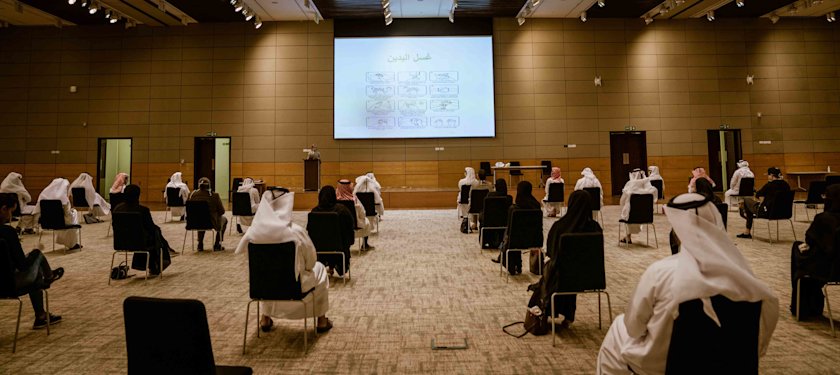
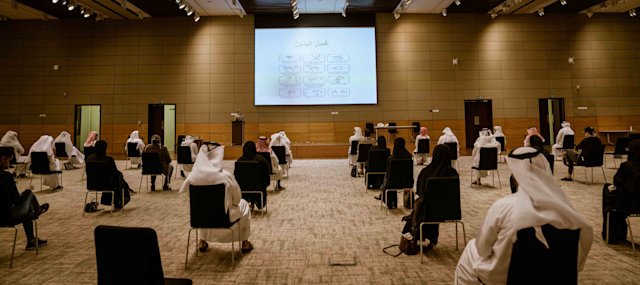
How learning becomes fun
Against the backdrop of the pandemic, the return of QF’s Arabic language-focused TV series Siraj in March took on added importance and value, supporting remote learning amid huge coronavirus-enforced changes to how education is delivered.
The 3D edutainment program, which has made stars of its animated lead characters Rashid and Noura, helps children aged 2-8 explore the Arabic language and build their literacy and numeracy skills, with the 15 episodes of its new season tackling themes ranging from science and history to morality and religion. “Siraj helps students to learn the Arabic language and makes learning a fun experience,” said Haya Al Dosari, a teacher at Qatar Academy Doha, one of the schools under QF’s Pre-University Education.
“The series is a vital tool in achieving the goals of education. It is also a remote form of learning, which is particularly important in the current climate.”
Against the backdrop of the pandemic, the return of QF’s Arabic language-focused TV series Siraj in March took on added importance and value, supporting remote learning amid huge coronavirus-enforced changes to how education is delivered.
The 3D edutainment program, which has made stars of its animated lead characters Rashid and Noura, helps children aged 2-8 explore the Arabic language and build their literacy and numeracy skills, with the 15 episodes of its new season tackling themes ranging from science and history to morality and religion. “Siraj helps students to learn the Arabic language and makes learning a fun experience,” said Haya Al Dosari, a teacher at Qatar Academy Doha, one of the schools under QF’s Pre-University Education.
“The series is a vital tool in achieving the goals of education. It is also a remote form of learning, which is particularly important in the current climate.”
Siraj helps students to learn the Arabic language and makes learning a fun experience
QF’s Siraj ‘edutainment’ program has:
- Spanned 3 seasons
- Been viewed 46.4m times
- Attracted 4.7m viewer hours
- Almost 205,000 subscribers
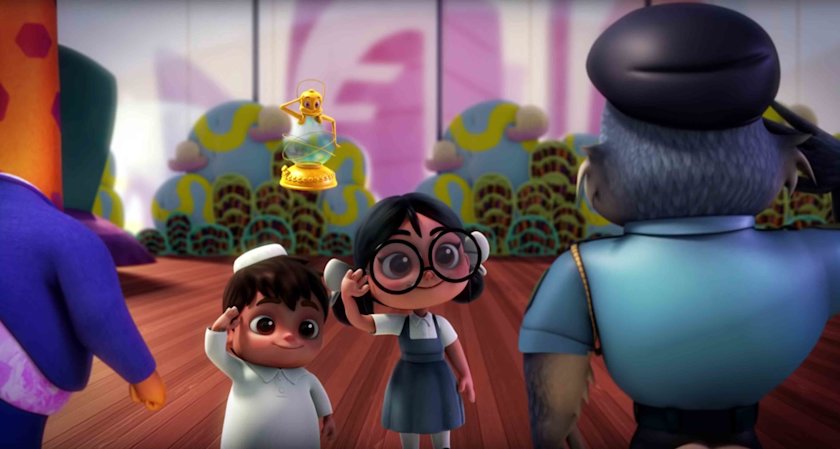
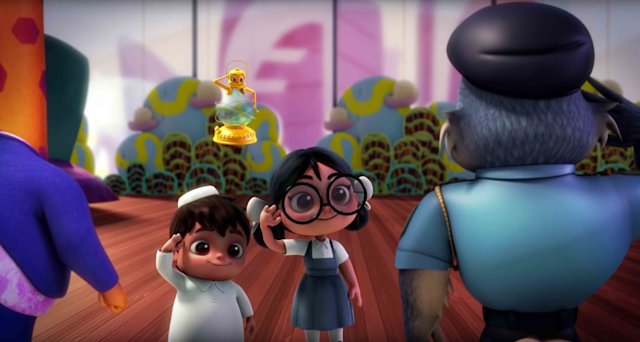
We will come out of this even stronger
As Qatar, and QF, adapted to its ‘new normal’, it did so in the spirit of resilience, unity, positivity – a spirit that would continue to be shown throughout 2020. And Her Excellency Sheikha Hind bint Hamad Al Thani, Vice Chairperson and CEO of Qatar Foundation, spoke for many when she said: “Life is a little overwhelming right now, but we’ve been preparing for a day like this. We can, and we will, rise to the challenge.
“The stories I’ve been hearing are heartwarming. Teachers thinking of ways to keep our children motivated. Our teams at QF ensuring third-party vendors are not affected. Scientists and researchers offering their support to government agencies.
“As a nation, we have proved to be resilient in the past, and I have no doubt that we will come out of this even stronger.”
As Qatar, and QF, adapted to its ‘new normal’, it did so in the spirit of resilience, unity, positivity – a spirit that would continue to be shown throughout 2020. And Her Excellency Sheikha Hind bint Hamad Al Thani, Vice Chairperson and CEO of Qatar Foundation, spoke for many when she said: “Life is a little overwhelming right now, but we’ve been preparing for a day like this. We can, and we will, rise to the challenge.
“The stories I’ve been hearing are heartwarming. Teachers thinking of ways to keep our children motivated. Our teams at QF ensuring third-party vendors are not affected. Scientists and researchers offering their support to government agencies.
“As a nation, we have proved to be resilient in the past, and I have no doubt that we will come out of this even stronger.”
We’ve been preparing for a day like this. We can, and we will, rise to the challenge
